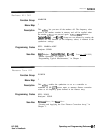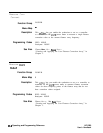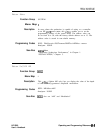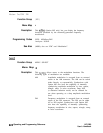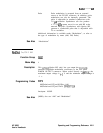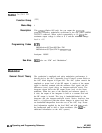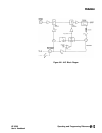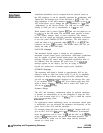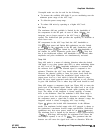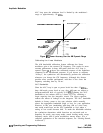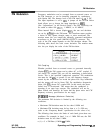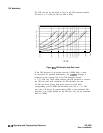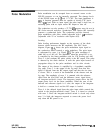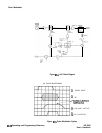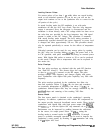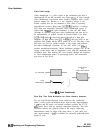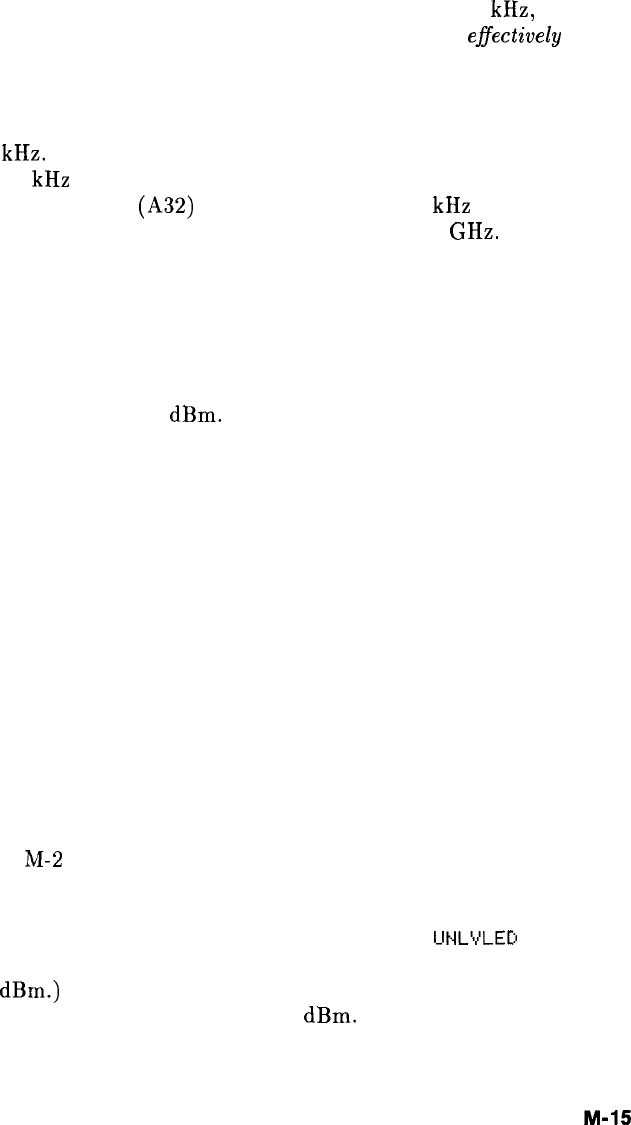
Amplitude Modulation
Uncoupled mode can also be used for the following:
n To increase the available AM depth if you are modulating near the
minimum power range of the ALC loop.
n To offset the power sweep range.
n To reduce AM noise by operating at a higher ALC level.
AM Rate
The maximum AM rate available is limited by the bandwidth of
the components in the RF path. At rates of about 100 kHz, the
integrator can no longer respond so the ALC loop is eflectiwely
opened. The feedforward path provides the capability to modulate at
much faster rates.
RF components in the ALC loop limit the ALC bandwidth to
250 kHz. High power and Option 006 synthesizers are also limited
to 100 kHz by the components in the RF path. Synthesizers with
frequency doublers (A32) are limited by the 100 kHz bandwidth of
the doubler for carrier frequencies greater than 20 GHz. Note that
due to the feedforward scheme, AM bandwidth is not affected when
amplitude and pulse modulation are simultaneously activated.
Deep AM
Deep AM mode is a means of reducing distortion when the desired
AM depth is very deep (greater than 90%) or when modulating below
an ALC level of -20
dBm.
Amplitude modulation is summed with
the reference level signal. The detected signal is compared to the
reference. Therefore, the ALC loop should follow the AM input.
However, the detector’s ability to sense low power levels limits the
maximum AM depth. When the modulation signal reduces the
output power level to a level which is below the detector’s range
limit, the error signal generated sends the integrator to rail, resulting
in gross AM distortion. This is where deep AM mode should be used.
Deep AM engages a comparator circuit (see Figure M-l) to sense the
power level of the detected signal. When the signal level is out of the
detector’s range, the loop integrator switch opens (opening the ALC
loop). The output of the integrator is frozen, applying a constant
drive to the modulator. Since the modulator’s most linear range is
at low power levels, the AM envelope distortion is minimal. When
the comparator senses a signal that is within the detector’s range, the
integrator switch is closed, re-engaging ALC loop leveling.
Figure
M-2
shows the leveled AM characteristics in the different
modes. The maximum leveled output with ALC engaged is shown as
the synthesizer’s maximum leveled output specification. (Individual
synthesizers may have more power; watch for an IJHLG’LED message.)
The minimum level is limited by the detector’s range (approximately
-20
dBm.)
With deep AM engaged, the minimum level (where the
ALC loop is opened) is set to -13
dBm.
This guarantees that the
detector can still sense the signal level with no distortion. With the
HP 8360
User’s Handbook
Operating and Programming Reference
M-15



